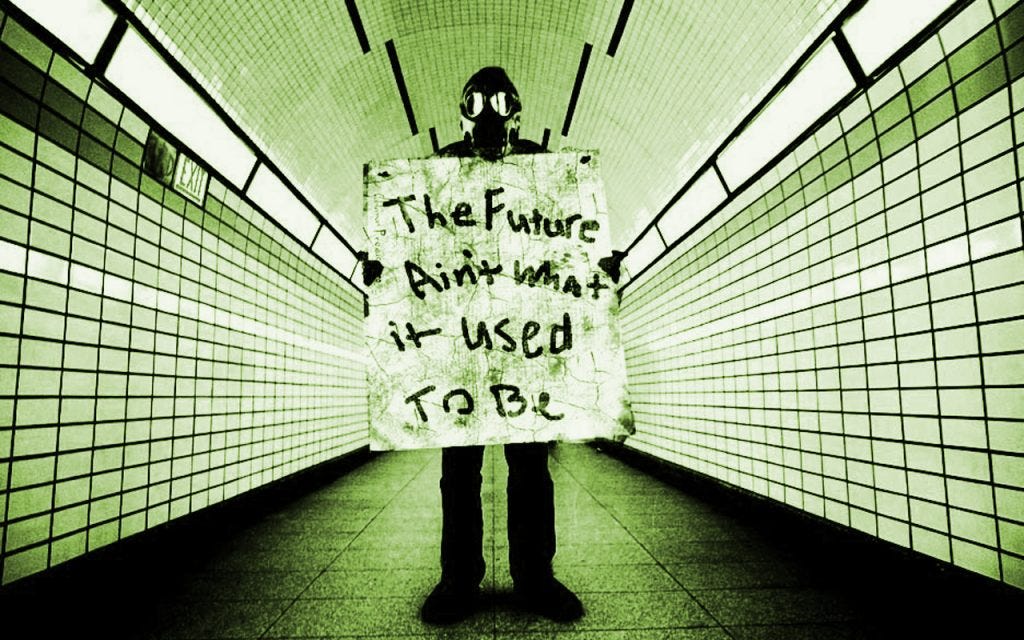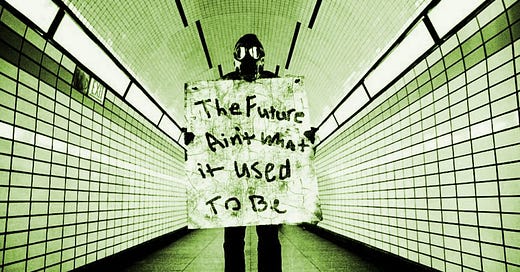The long view

I had a conversation with a friend a few months ago about immigration. We are both immigrants, but with clearly differing views on it. The conversation quickly moved on to culture and demographics, but maybe it started with them. I laid out my angst that he countered with……… I don’t even know what. It was not optimism but it was not resignation or indifference either. I could call it a cliché, but in his case I don’t think it was. I believe that it was his sincere opinion. He countered my concerns about the demographic and cultural suicide of the West with saying: “what difference does it make?” He is taking ‘the long view’ on the matter. The world will be whatever it will be, just different from what we have today. The immigrants of today are not any worse than the immigrants of yesterday, they just look different. The Western world will be brown. So what? The white race may disappear. So what? In the long run, it makes no difference. Other people I know also hold some variation of the “long view”, the idea that on a historic scale, the changes around us are inevitable and therefore it is pointless to fight them. I shouldn’t resist, I shouldn’t protest. I should keep quiet, enjoy my life and stop worrying about the cultural suicide of the West. The attitudes are not necessarily the same. The first is trying to goad me into submission, the second is trying to make me accept the stark reality and to stop fighting windmills. The first is the obnoxious “It’s the current year” stupidity of our Prime Minister, the second is the apocalyptic realism of Mark Steyn.
Call me Don Quixote
Historic inevitability is an argument I heard many times. I grew up with it. We were told that communism is forever, because it represents the ‘scientifically proven’, inevitable path of history. (Considering my incessant reminders of how the world around me feels increasingly like the communism of my childhood, some people will probably point out that this is still the case.) Nevertheless, the point is that the argument is coming from the same people. It is always the ‘resistance is futile’ collective that tries to convince us that resignation and submission are the most sensible positions to take on matters that help them but hurt us. It is presented as if, somehow, inevitability was a virtue in itself. Accepting inevitability is implied to be a sign of wisdom even if neither the value, the virtue or the very nature of inevitability can be demonstrated. Shouldn’t we start asking why a particular course or outcome is inevitable? What makes it logical or moral? What is the benefit in NOT trying to change it? Not even slightly? Any time we are told that something is inevitable, there is a good chance that the person telling it to us wants it that way but don’t want to be challenged on it. It is always a substitute for arguments by those without any. The challenge the ‘resistance is futile’ crowd wants to avoid is a set of hard questions: Are we going in the right direction? What is the right direction? What do we expect or hope for? Why? What sort of changes this direction will be most likely to bring? More specifically about immigration: Is this new wave a good thing? Why do we actually need it? If we want the immigration to solve particular problems, what are the indications that the kind of immigration we have will actually solve them? If we want immigration because we want to do good, can we afford it? Can we achieve our aim of doing good? Is immigration the best way to do good? We could go on with the questions, but it is a futile attempt because no promoter of the policies is willing to answer them.
Immigration
Canada, like most western democracies, have a dirty little secret: it is already spending the money of future generations and it made further promises to the present ones that it cannot possibly keep in the future with the steadily shrinking tax base of an aging population. The main driving force of immigration policies in Western democracies is the need to replace the children the state encouraged people NOT to have. We need immigrants, because we need tax slaves. The point of immigration is an ever more desperate attempt to keep the party going. Without it, the welfare states would have to face some serious reckoning and would be forced to admit failure, to scale back and renege the irresponsible promises it made to its citizens. The second ‘chapter’ of this Economist video (starting at 4:20) about “trends that will affect our lives in the future” have an apt title: ‘Confronting obstacles to immigration’. It is fascinating how shameless it is validating the points I made above. (emphasis mine)
“For richer countries in the West, it is international migration that will need to play a larger role in driving economic growth and change”
“....all of these developed countries are going to be part of a much more fluid global economy, a much more fluid workforce. There certainly has to be regulations no question about that, but the idea that, you know, every country can have its own borders and they're a self-contained economic and political unit, people we look 10-20 years down the road, that kind of idea is going to start fading into the background”
I am with Mark Steyn when he says: “…when starry-eyed utopians speak of a world without borders they're assuming it'll be a lot more like Sweden then Syria and I'm not that sanguine about that” The second, but just as important driver of immigration is the acquisition of voting blocks. When third world immigrants arrive into the developed countries, they get a crash course on the welfare system. They very quickly learn how to use and abuse the system. They very quickly learn to vote for more. New immigrants in the developed world vote massively for more redistribution. In the 50s and the 60s, immigrants got very little, if any, help. When I came to Canada in 1980, I was already in a minority NOT getting any government help. Today it is already a big welfare racket with an army of bureaucrats and social workers depending in it for their livelihood. And herein lies the problem. Not only is this immigration policy disturbingly exploitative on several levels, it is also rather stupid. It assumes that some miracle will transform new immigrants from net users of the system into its willing providers. It assumes that they will be either stupid enough not to notice that they are used, or generous enough not to mind. Even if we accept the premise that immigration can solve the fundamental structural problems of the over-spending, over-promising and tax-base-shrinking welfare states, we could ask the promoters of mass immigration why are they insisting on getting them from incompatible cultures? Why don’t we open the doors to Europeans (East and West alike?) Why don’t we invite in the white population of Zimbabwe and South Africa? They are facing the very real prospect of becoming victims of ethnic cleansing. From the middle east, why don’t we give preference to Jews, Christians and other oppressed minorities? Why don’t we get more East Asians? Every bit of evidence shows that they are far more successful as immigrants and even integrate better. The answer is depressingly obvious: politics. The promoters of mass Muslim immigration know, that unlike Muslims, those immigrants will not become easily herded voting flocks. There is yet another, a psychological benefit. By posing as the virtuous protectors of their favoured victim group, they can brow beat their opponents with accusations of racism, xenophobia and islamophobia while also galvanizing their own base with the virtue signaling. All of this mass immigration is taking place at a time in history when we are facing the most fundamental economic transformation in history. The very nature of work is changing. A significant percentage of the immigrants the West imports today from the third world will be unemployable in that new economy. Not only will this new mass immigration not solve the demographic problems of the West, it will exacerbate them. And this is all before we even take the cultural problems into consideration.
Diversity
The above problems will still dwarf the problems of culture. The larger a group of immigrants from the same culture is, the less likely it is that they will assimilate into the host culture. This is true even when those cultures are similar. Muslims and people from Sub-Saharan Africa will face significant difficulties even having the best of intentions, which most have no reason to have. Muslims in large numbers are not very good at integrating. And why should they be? The politicians, the media, the ‘system’ keeps telling them that they shouldn’t. This is the essence of multiculturalism. Fragmentation and cultural conflict will only get more serious. In Europe, it is already close to the boiling point.
The long view
To sum it up:
Mass immigration of people without marketable skills from incompatible cultures will not solve the structural problems of the host countries.
It will not be good for the immigrants or the society that they will be unlikely to integrate into.
The immigration policies of Western democracies only serve the narrow minded, short term and short sighted self interest of its promoters.
The long view is just a rehashed utopian dream. It assumes that we all are (or can be made) the same, that biological, cultural and ideological differences either don’t exist or do not matter, that whatever the outcome of this wild experiment will turn out to be it will be for the better. History has a direction and we are not supposed to question it. But I do, and I think we should. In my next post, I will explore the possibilities of our confusing future. To consider further arguments, look at some older posts: Immigration delusions Immigration – My personal stories Immigration – race, culture & ideology Immigration – the philosophical case Immigration – the cultural case Immigration – the moral case Immigration – the economic case Immigration – the political case Immigration – Libertarian kumbaya Intelligence and decency The future of the Past Dear Frau Merkel


